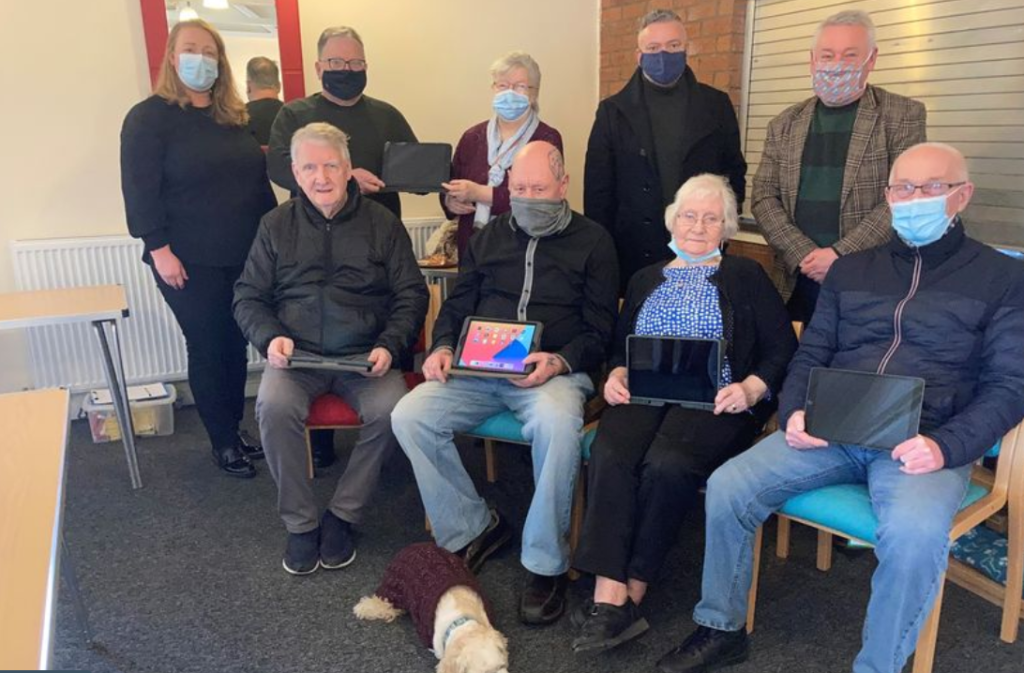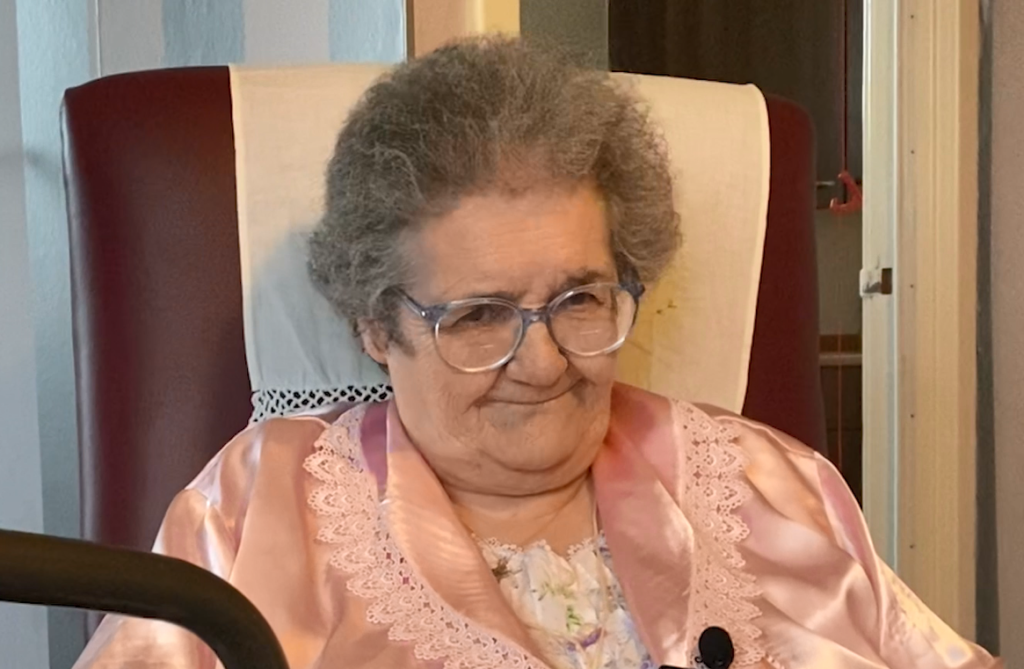
Social Inclusion
recipient of a device from Shakti and Edinburgh Women’s Aid"It feels like so much more than a laptop. Hard to explain. It feels like some support, care, help. Smiling! I’m feeling more positive than in a while."
Did you feel lonely or isolated during lockdown? Did you speak to friends and family online? How would you have managed if you'd had no device or no internet at home? Internet access can be a lifeline to help with social isolation, even a route to safety. Connecting Scotland has had a huge impact on social inclusion in Scotland. Thousands of people who felt lonely and isolated during lockdown were able to be included in the online life that many of us took for granted.
Digital inclusion is also an incredibly positive addition in to the lives of many people with disabilities or impairments, who can often feel isolated and lonely even within their own families. Devices become another tool to enable them to minimise any limitations and barriers the world creates for them.
Billy, recipient supported by Connected Communities, North Ayrshire"The impact receiving my ipad has been terrific. It enables me to keep in contact with friends and family as I live alone and have disabilities."
recipient of a device from Barmulloch Community Development Company, Glasgow“This device is keeping me connected to the world.”
Tricia, who is sight impaired, received support from East Ayrshire Council"It gives you some company and keeps you connected, it makes you feel human."
Thanks to the help of devices from Connecting Scotland Raploch Community Partnership continued their Community Chorus online during lockdown.
Meet Karen, a Digital Champion in Renfrewshire, talking about a young person who always struggled to connect with others.
Meet Agnes, talking about what a life saver having a device was during lockdown.
Sue's story
Sue received a device and internet connection from the Libertie Project in Inverness.
"Before I got my device, I struggled to access information and felt isolated. Having an iPad, with mifi and support to use it, made a huge difference; with information at my fingertips, I felt more connected. The addition of a refurbished iPhone, given to me by the Libertie Project to complement my iPad, has made a world of difference; the combination of the two devices has been life-changing.
As a severely sight-impaired person, the devices have helped me greatly. Information is automatically transferred between them and they work as one. At home, I can use the larger-screened iPad, and for taking out and travelling on public transport, the smaller, more portable iPhone. They have good accessibility features which enable me to tailor them to my individual needs. For example, I can select a large, bold white font on a black background. In addition, I can use them as visual aids to photograph things that I am unable to see in detail, for example, behind-the-counter menus and travel indicator boards, and then enlarge the image.
In more general terms the devices have helped me in many ways. I am more connected to my local community; I could help a neighbour, whom I hadn’t spoken to before, find her cat because I had seen a post on Facebook. I am a more confident public transport user since I can access timetables and information to plan my journey and use transport apps to get live updates. And the devices have helped with my voluntary work as I can view and edit shared spreadsheets, and use social media groups to communicate more easily with other volunteers.
I use my devices for things such as emails, social media, news, travel and weather, making notes, listening to music, watching television, accessing information and voluntary work. I would be lost without them.
There are so many more things that I would like to use my devices to do, and probably even more of which I am unaware I could use them to do. In the short-term, I would like to learn how to use voice activation as I think, once mastered, this would make using my devices easier.
Help from The Libertie Project has been a vital component of this package. They have shown me how to use my devices and become more accustomed to the digital world. But more than this, they have seen me as an individual with specific needs and have gone much further than ‘the extra mile’ to meet them.
The Connecting Scotland helpline, staffed by knowledgeable and patient people, has been a fantastic resource.
Many thanks to all those responsible for this life-enhancing scheme.
Its value to me has been, and remains, immeasurable."

Digital drop in session at Lorne Garden retirement complex in North Lanarkshire where their Digital Champion Audrey has set up a buddy system for residents to share their digital skills with each other as they learn.

David, who received a device from Renfrewshire Health and Social Care Partnership, and has enjoyed learning how to look up cinema times, use Zoom and make creative videos of music and photos.

Ruby, who received a device from Middlefield Community Project in Aberdeen and has delighted in receiving virtual birthday and Christmas cards.
Quotes from organisations
Alison, supporting people with learning disabilities, Orkney Island Council Lifestyle Services“One learner previously attended IndepenDANCE, however, couldn't do this anymore due to Covid. He is now using his Chromebook to join weekly dance classes for folk with learning disabilities and loves it!”
Clare, Project Support Worker and Digital Champion at Barmulloch Community Development Company, Glasgow“Great to be able to give the community an opportunity to begin learning to live in a more digital world.”
Alison, supporting people with learning disabilities, Orkney Island Council Lifestyle Services“Some users are non-verbal and the Chromebooks have meant that they can take photos and videos of what they have done with their day to show family & friends. ”


